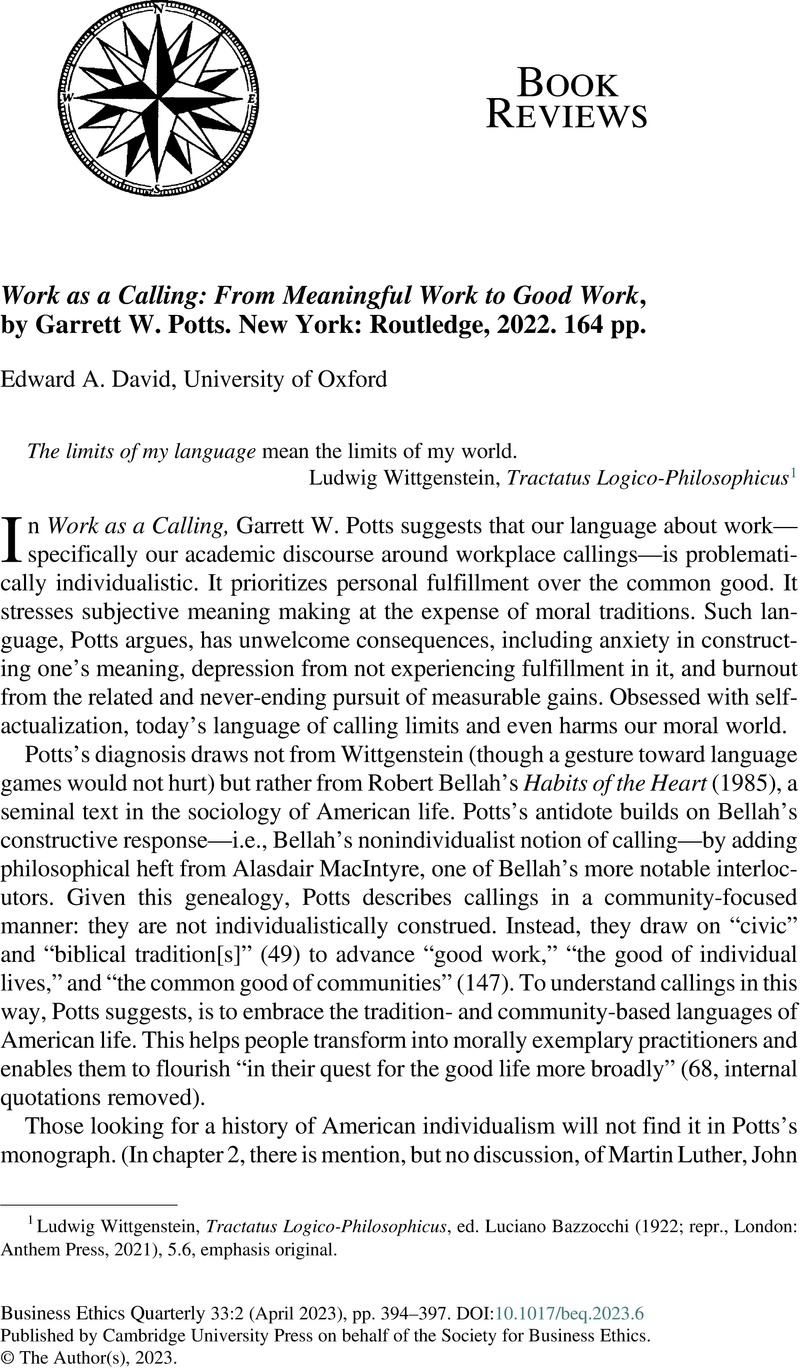No CrossRef data available.
Article contents
Work as a Calling: From Meaningful Work to Good Work, by Garrett W. Potts. New York: Routledge, 2022. 164 pp.
Review products
Work as a Calling: From Meaningful Work to Good Work, by Garrett W. Potts. New York: Routledge, 2022. 164 pp.
Published online by Cambridge University Press: 17 April 2023
Abstract
An abstract is not available for this content so a preview has been provided. Please use the Get access link above for information on how to access this content.

- Type
- Book Reviews
- Information
- Copyright
- © The Author(s), 2023. Published by Cambridge University Press on behalf of the Society for Business Ethics
References
REFERENCE
MacIntyre, Alasdair. (1981) 2007. After Virtue: A Study in Moral Theory. 3rd ed. London: Duckworth.Google Scholar


